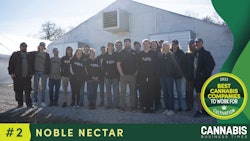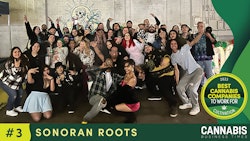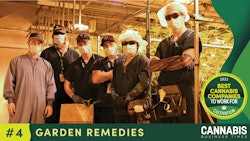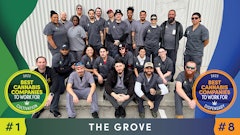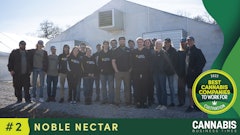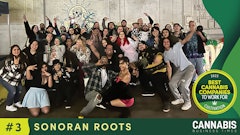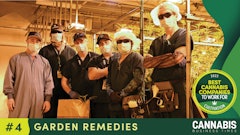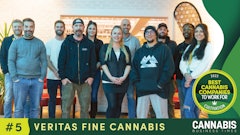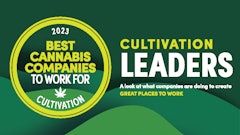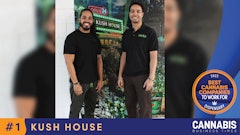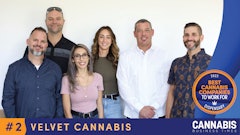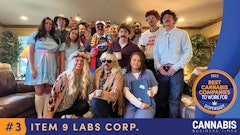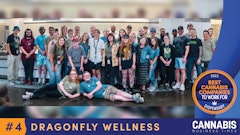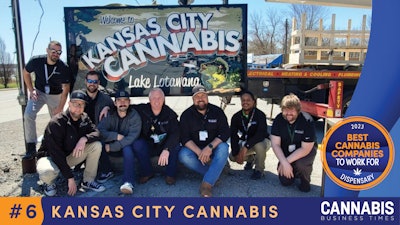
Dan Nelson: I lost a family member to an overdose when I was 9 on Thanksgiving Day. So it was a hard time for the family. At that time, I didn’t realize how much of a medical benefit cannabis had and the necessity to have clean medicine. I’m a contractor by trade and an opportunity was brought to me to help build this company. I was going to come in and help build some stores up, but I heard testimony from everybody, and a lot of the research that was happening, and it really opened my eyes up. I became more passionate about it, so that’s why I’m here now.
Forest Palmer: I started using cannabis early on. I’m from Los Angeles; it’s a different cultural acceptance out there. I fell in love with it for different reasons in different phases in my life. I never thought it was going to be a career path.
I got into the industry as soon as I legally could at 21 years old and moved back [to Missouri] in 2016, because we thought we were going to legalize the first time. Then in 2018, the law passed. I jumped on with Dan and a couple other guys, and honestly it’s been the no. 1 passion that only recently became a reality as a career path. Missouri was an opportunity to get back home where my family was, and it was the beginning of the industry here.
We have a seal on the wall on our dispensaries that says “patients first,” and our training goes hand in hand with that. Our training is 10 days long before anyone is ever running the ship by themselves. We do three to five days of classroom training depending on how many people are there. Most of our pitch, if you will, is revolved around how the person wants to feel and listening to them. That all encompasses our culture of actually caring about the people who walk through our doors, whether you’re a patient or on our team or a soon-to-be rec customer. [Editor’s Note: Adult-use sales in the state launched Feb. 3, after this interview. Kansas City Cannabis was approved to convert to adult-use sales.]
RELATED: Missouri’s Adult-Use Cannabis Program Launches
DN: We try to instill a lot of trust and family likeness here in the company culture. I also came from a working superintendent environment. I was out in the back of one of our dispensaries that’s on a septic system, and I was digging up a pipe. The staff will joke, “If Dan is willing to do it, we’ll do it.”
FP: We only promote from within. So when I was originally hired, I was supposed to be a store manager, our director of administration was supposed to be an office assistant, so people get the opportunities to prove themselves and move up.
When you get hired on as a budtender, and there’s four people with you, and you get to actively see those people move through the ranks and improve their lot in life because of the job they are able to get with a company they decided to stick it out with, that’s massively inspiring.
DN: These are skill sets that are a rarity. There is no trained pool; we’re training everybody. And when people choose to leave, we support them in that exit. There’s only so much you can grow in a company, and when they have an opportunity, we support that.
Corey Martin: We can teach you how to run a POS. We can teach you about weed. We can teach you different customer service skills. But what I can’t teach you is empathy and compassion, so that’s what I really look for when I’m interviewing. Can they talk to patients and understand their needs and how we can fulfill those?
FP: Listening is important, especially when it comes to patient interactions. Part of our training is, when you’re asking someone how they want to feel, if they say they want to feel relaxed, well you got to dig a little deeper than that. Because relaxed for one person could be fishing, calmly sitting on the water, while relaxed for another person could mean downhill biking.
We are pretty much a company of long shots that were given an opportunity that we weren’t given elsewhere. Since that chance was taken, I think we’ve really reaped the benefits of having those long shots on our team.
DN: We were a long shot. We had a 6% chance of winning a dispensary license with a homemade, home-written applications, and then we won five applications.
COVID delayed the whole Missouri medical market program. It wasn’t easy. We all had ancillary jobs to keep us busy while we were trying to build this thing at night until we got the green light to go. We had people waiting on the sidelines for almost a year.
FP: Just trying to operate as a normal business when you don’t get any treatment as a normal business is really hard.
DN: We’ve even taken steps to help our employees with their own home lending and car lending through our bank relationships. A lot of banks, once they see your check is from Kansas City Cannabis, they won’t accept it. We have a very fortunate hiring pool of people that are advocates already for the industry, so they understand some of the risks that come with that. And as long as we’re willing to ride that with them, they’re on board.










